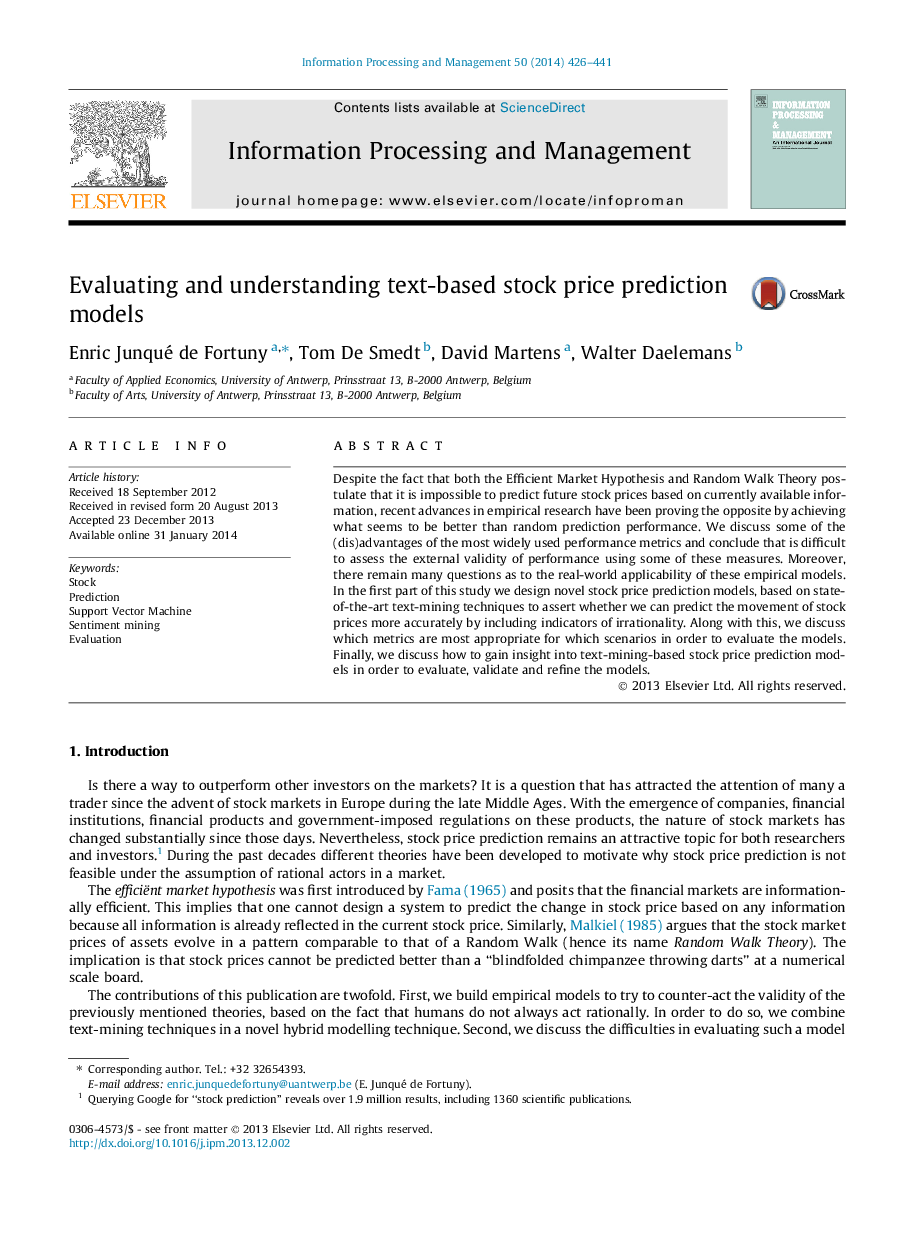| Article ID | Journal | Published Year | Pages | File Type |
|---|---|---|---|---|
| 515871 | Information Processing & Management | 2014 | 16 Pages |
•Several state-of-the-art stock prediction models are constructed.•Different metrics for evaluating prediction models are discussed.•Explanatory techniques are applied to gain insights into the model’s decisions.
Despite the fact that both the Efficient Market Hypothesis and Random Walk Theory postulate that it is impossible to predict future stock prices based on currently available information, recent advances in empirical research have been proving the opposite by achieving what seems to be better than random prediction performance. We discuss some of the (dis)advantages of the most widely used performance metrics and conclude that is difficult to assess the external validity of performance using some of these measures. Moreover, there remain many questions as to the real-world applicability of these empirical models. In the first part of this study we design novel stock price prediction models, based on state-of-the-art text-mining techniques to assert whether we can predict the movement of stock prices more accurately by including indicators of irrationality. Along with this, we discuss which metrics are most appropriate for which scenarios in order to evaluate the models. Finally, we discuss how to gain insight into text-mining-based stock price prediction models in order to evaluate, validate and refine the models.
